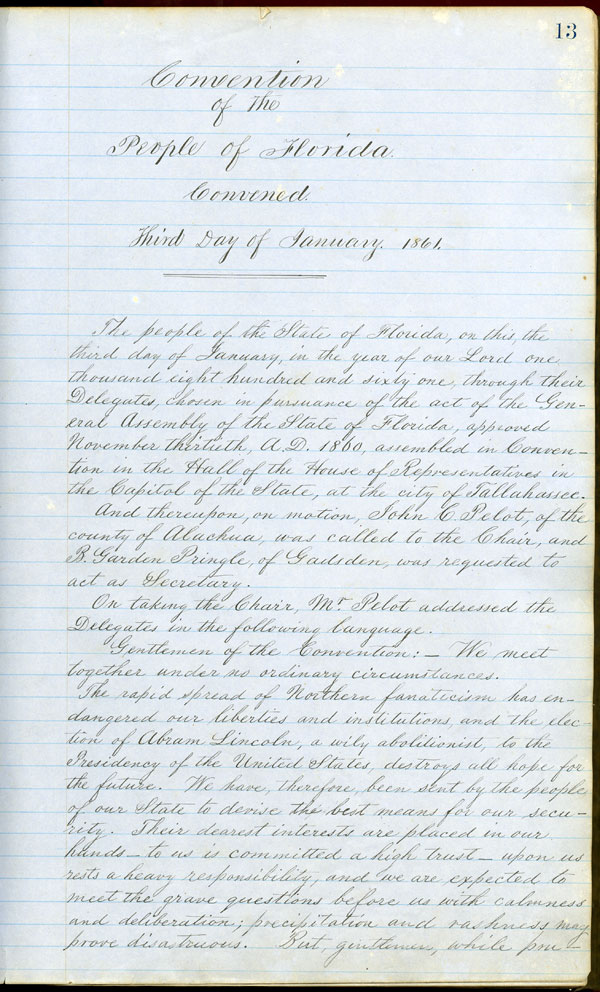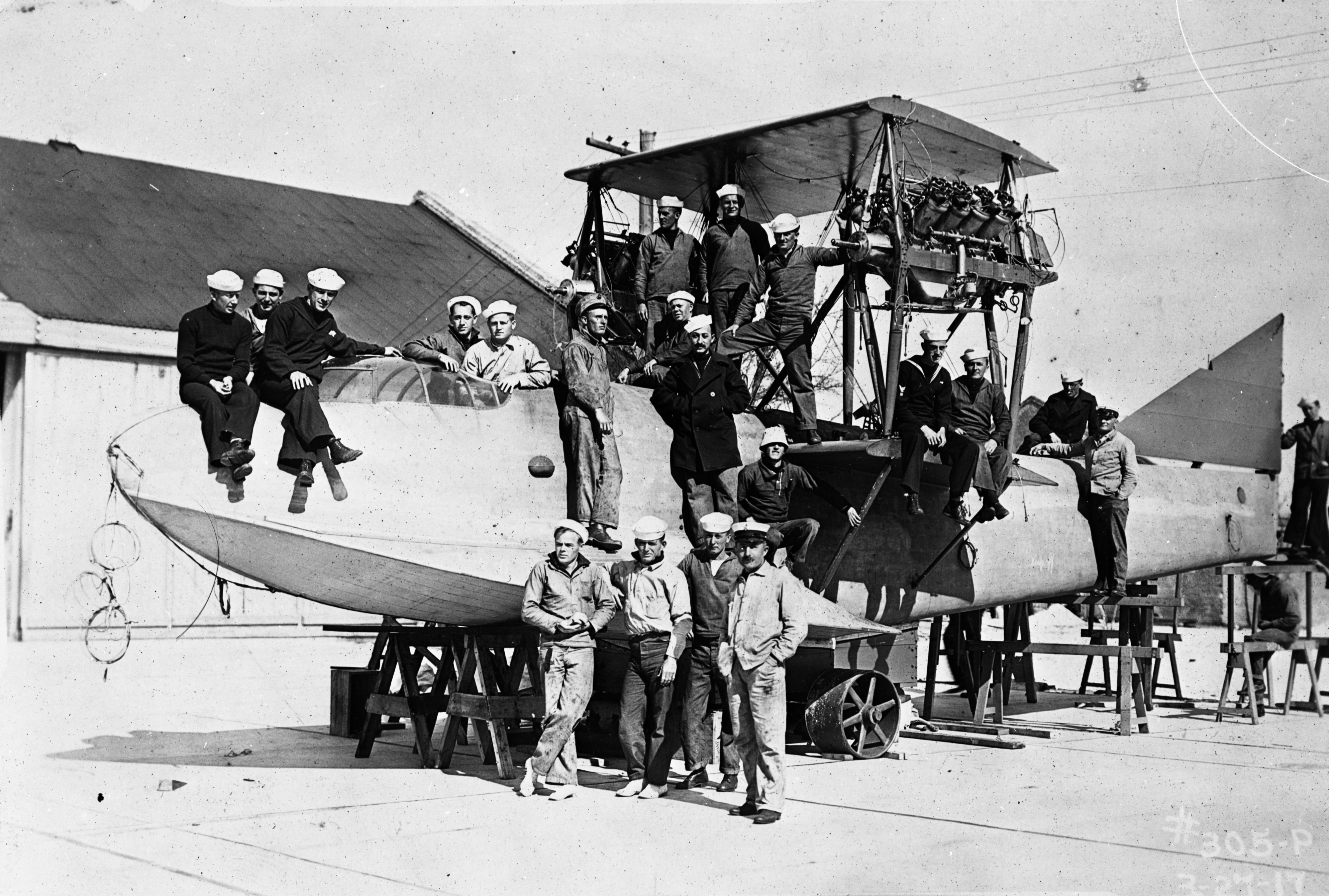Lincoln Letters
Florida Convention of the People, Minutes, 1861-1862. (Page 1 of 5)
Date: 1861-1862
Florida’s secession convention, officially entitled “The Convention of the People of Florida,” met in Tallahassee in January, February, and April 1861, and during January 1862, holding its last meeting on January 27, 1862. The convention voted to take Florida out of the Union on January 10, 1862, when it passed the Ordinance of Secession (Series 972). In addition, the convention ratified the Confederate Constitution (Florida was the third state to secede and one of the seven original members of the Confederacy), created an executive council to oversee the actions of Governor John Milton, and passed numerous ordinances and resolutions concerning Florida’s sovereignty, relations with the Confederate States, and the operations of the state’s government.
Lincoln Letters

Florida Convention of the People, Minutes, 1861-1862. Series 540, 1 volume.
The following excerpt from the minutes of the secession convention (pp. 13-14) is the opening statement of the chairman of the convention, John C. Pelot of Alachua County, who addressed the delegates at the beginning of the convention’s first meeting on January 3, 1861. During his address, Pelot points to the election of “Abram Lincoln” as a threat to Florida’s security.
Gentlemen of the Convention: We meet together under no ordinary circumstances. The rapid spread of Northern fanaticism has endangered our liberties and institutions, and the election of Abram Lincoln, a wily abolitionist, to the Presidency of the United States, destroys all hope for the future. We have, therefore, been sent by the people of our State to devise the best means for our security. Their dearest interests are placed in our hands—to us is committed a high trust—upon us rests a heavy responsibility, and we are expected to meet the grave questions before us with calmness and deliberation; precipitation and rashness may prove disastrous. But gentlemen, while prudence and a proper discretion should characterize all our deliberations, we must not forget that the important crisis demands great firmness. I trust we are fully prepared to meet the grave issues before us as true patriots.
Our legislature, through purely patriotic motives, has us in a conspicuous position. The eyes of the world are upon us, and our action will affect, for weal or for woe, not only our own State, but perhaps our sister Southern States also; and now, gentlemen, permit a word of admonition. Although our interests are one, and we all desire to effect the same great end, yet there will, of necessity arise a confliction of opinion as regards the best means to be used for its accomplishment. But I trust that strict courtesy will characterize your debates. We may honestly differ in minutiae, but we are engaged in a common cause. We are brethren, and must stand shoulder to shoulder in the great work before us. And may the God of mercy and goodness direct us in our deliberations, that we may arrive at the best means to accomplish the desired end. [1]
Footnotes
[1] While there was little dissension among the delegates over whether Florida should secede (the vast majority of the delegates supported secession), there was disagreement over the manner of secession. Most delegates wanted to follow the lead of South Carolina, the first state to secede (December 20, 1860) and secede without delay. Opposed to this course were a number of delegates who wanted to hold off on secession until Florida could be assured that additional southern states, especially the neighboring states of Georgia and Alabama, were ready to secede as well. Known as “Cooperationists,” this minority of delegates believed that a solid front of southern states seceding in unison would be a more effective way of obtaining southern independence than the piecemeal secession of individual states. Many Cooperationists also hoped that secession in unison might lead to the quick restoration of the Union, once the North realized that the entire South was willing to secede. In the end, the Cooperationists lost the vote on the method of secession: the convention voted to secede immediately, without waiting on the rest of the South, on January 10, 1861.

 Listen: The Assorted Selections Program
Listen: The Assorted Selections Program